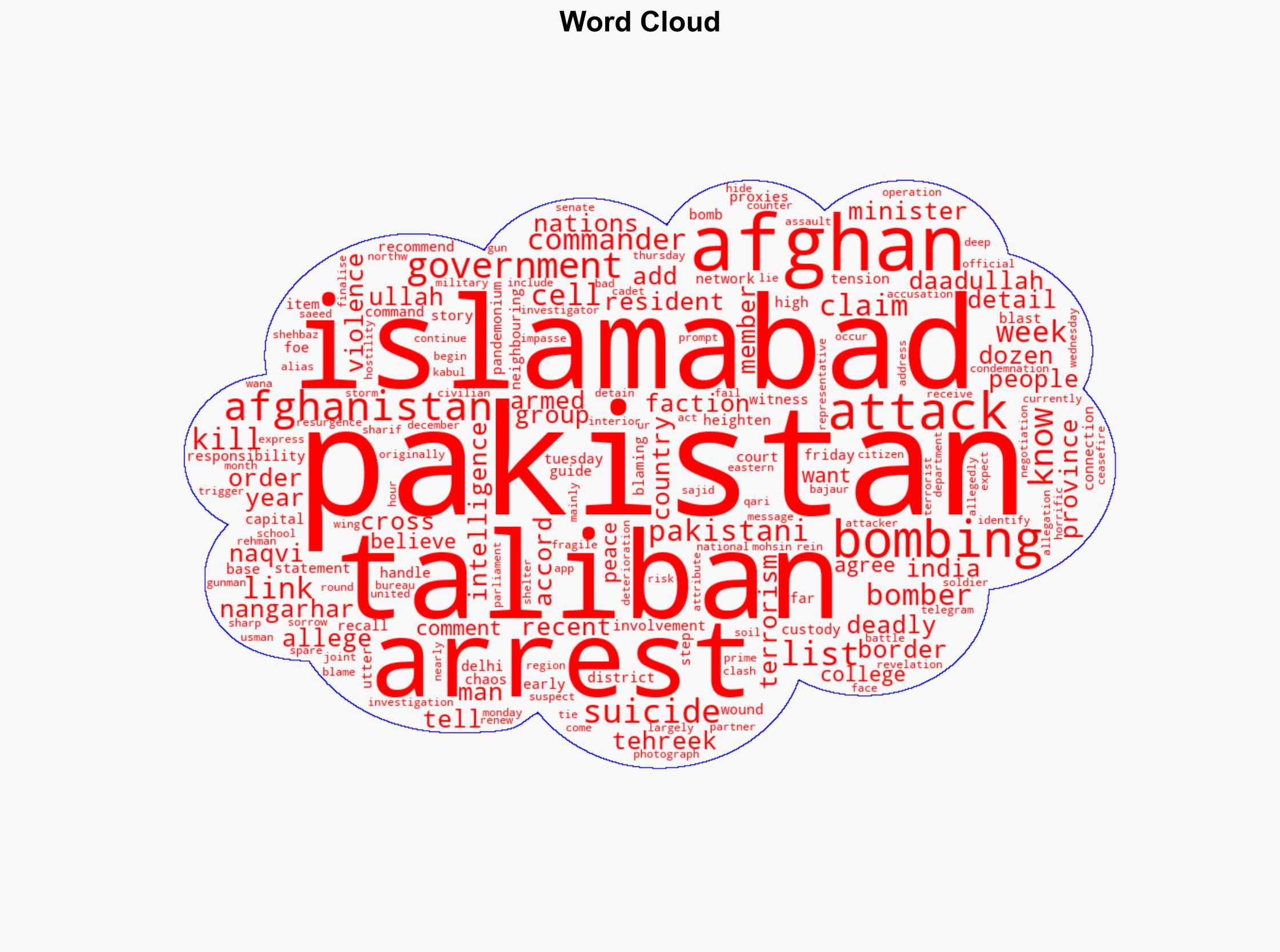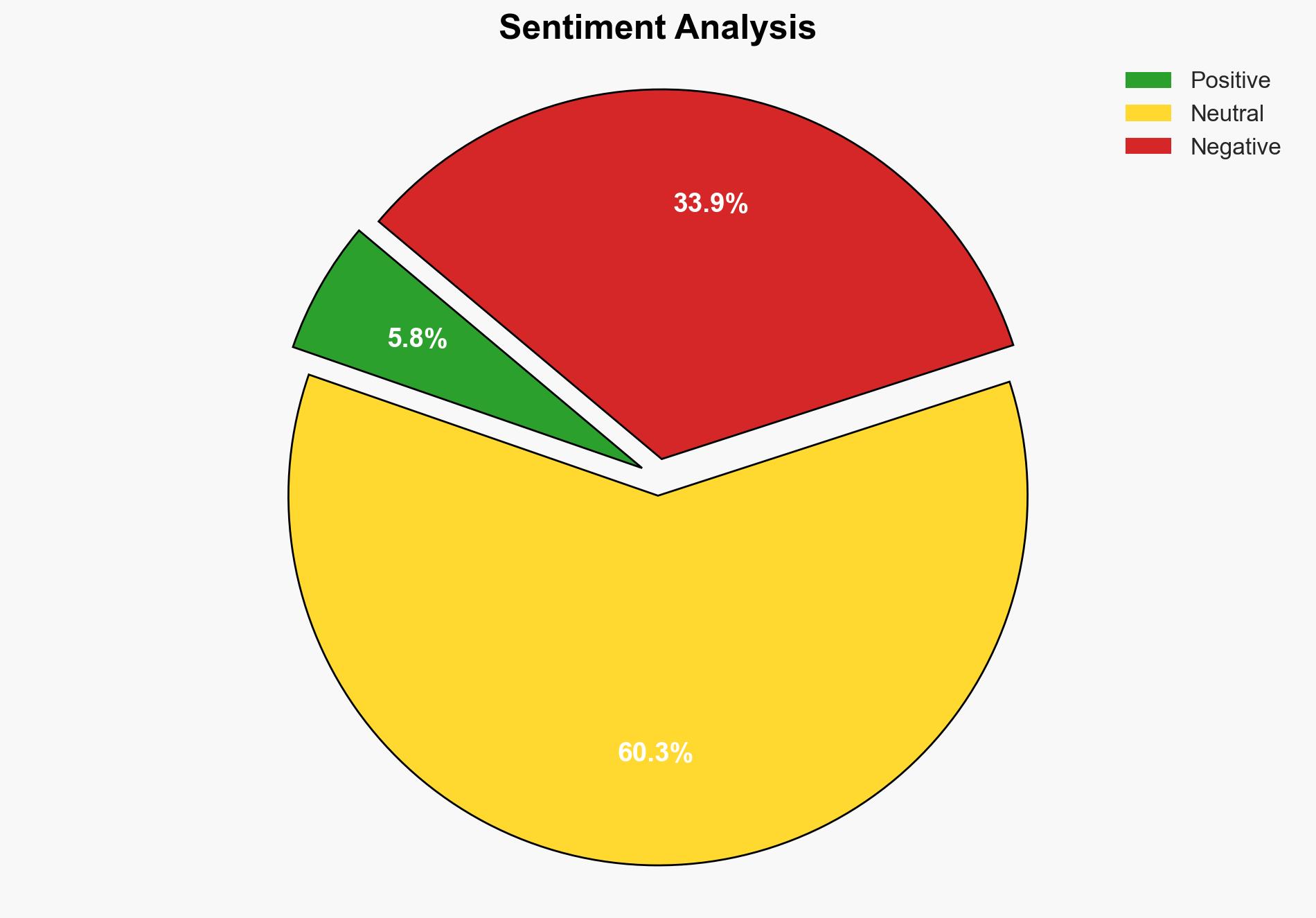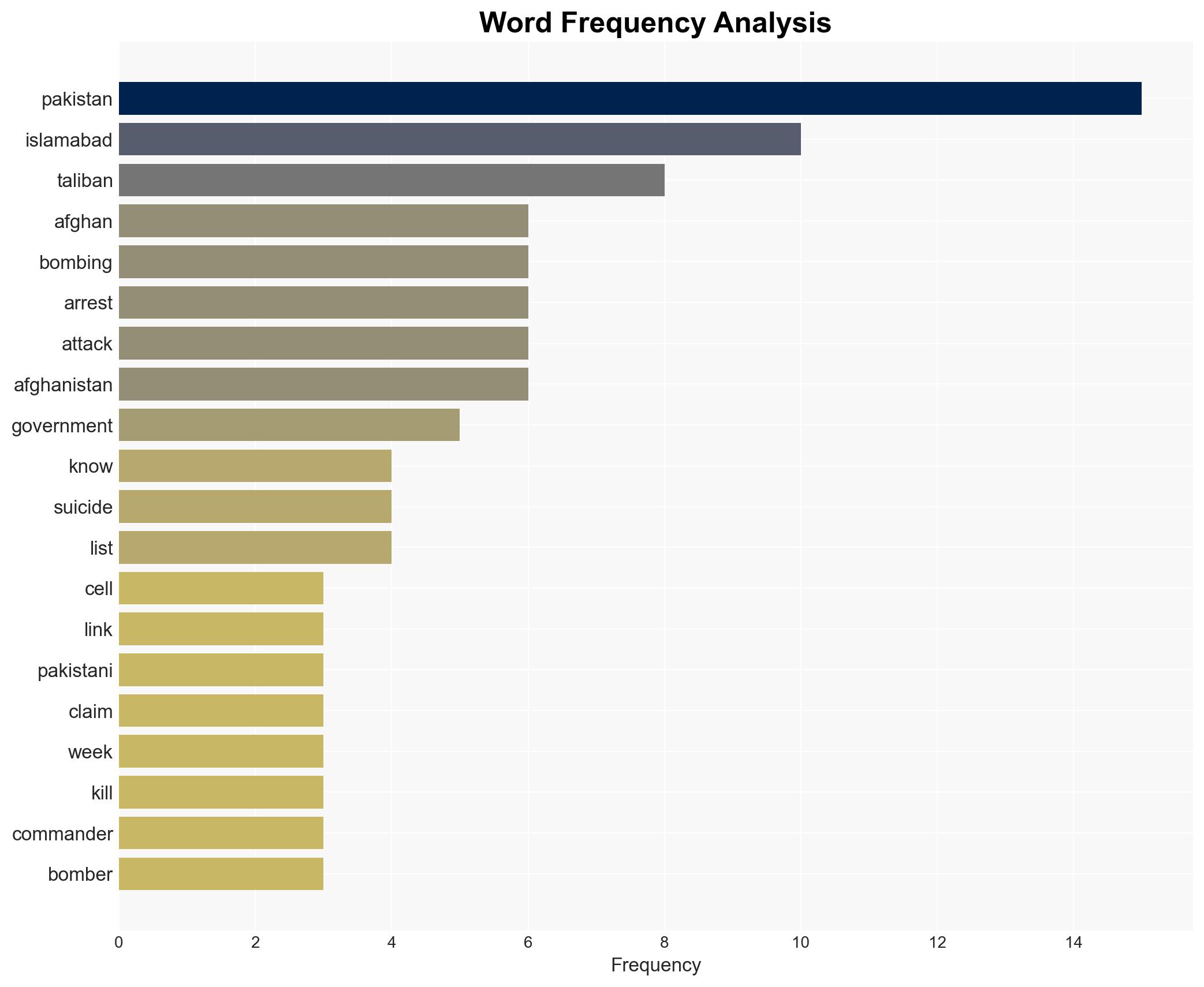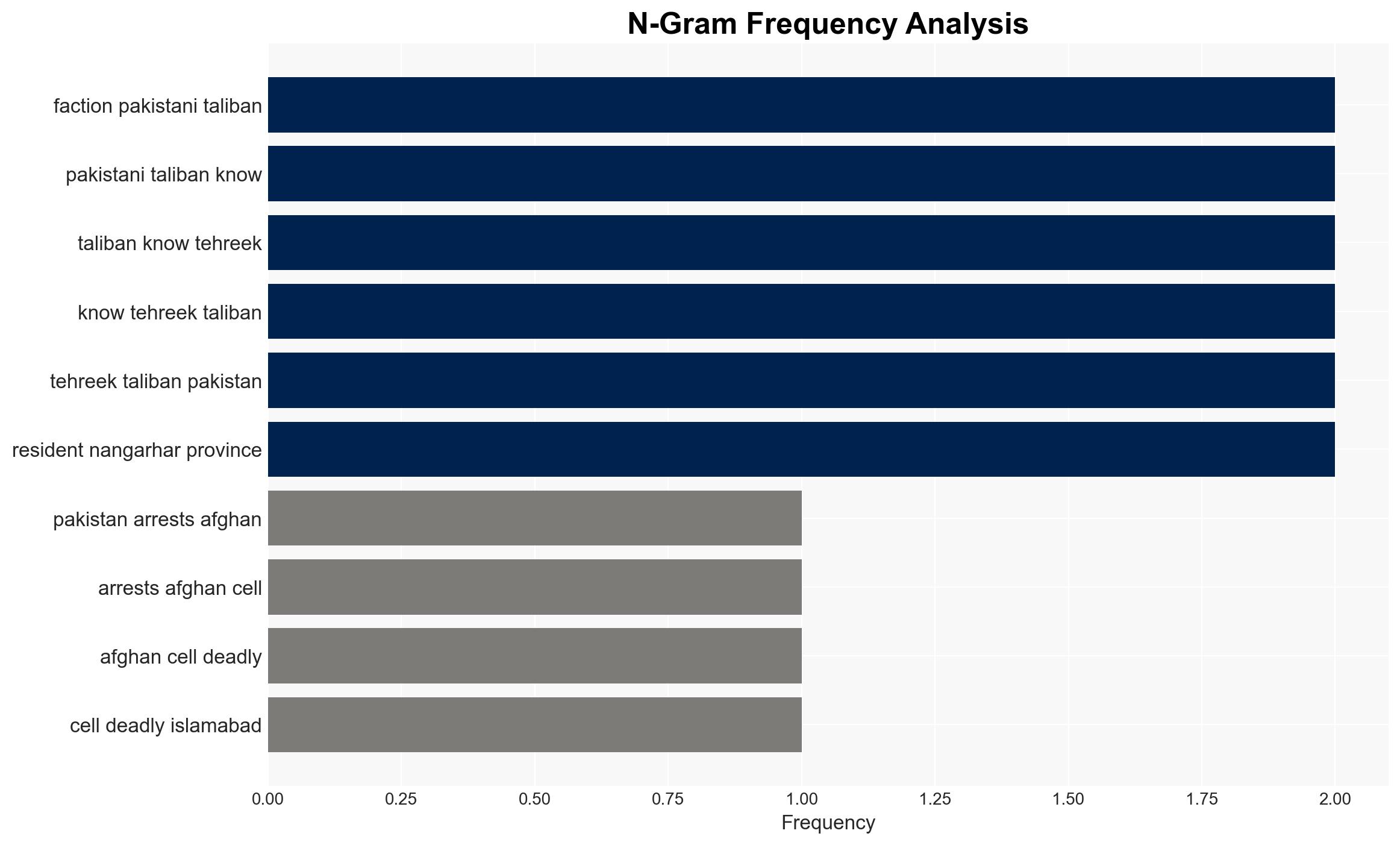Pakistan arrests 4 from an Afghan cell over deadly Islamabad bombing – Al Jazeera English
Published on: 2025-11-14
AI-powered OSINT brief from verified open sources. Automated NLP signal extraction with human verification. See our Methodology and Why WorldWideWatchers.
Intelligence Report: Pakistan arrests 4 from an Afghan cell over deadly Islamabad bombing – Al Jazeera English
1. BLUF (Bottom Line Up Front)
With a moderate confidence level, the most supported hypothesis is that the Islamabad bombing was orchestrated by a faction of the Pakistani Taliban (Tehreek-e-Taliban Pakistan, TTP) with operational support from elements within Afghanistan. Strategic recommendations include enhancing cross-border intelligence cooperation and increasing diplomatic engagement with Afghanistan to mitigate future threats.
2. Competing Hypotheses
Hypothesis 1: The Islamabad bombing was a direct operation by the Pakistani Taliban (TTP) with logistical and operational support from Afghan-based elements.
Hypothesis 2: The bombing was an independent operation by a rogue Afghan cell, using the TTP name to create regional instability and provoke tensions between Pakistan and Afghanistan.
Hypothesis 1 is more likely due to the TTP’s historical pattern of cross-border operations and the specific mention of a TTP commander ordering the attack. The involvement of Afghan nationals suggests a coordinated effort rather than a rogue operation.
3. Key Assumptions and Red Flags
Assumptions: The TTP has the capability and intent to conduct operations in Islamabad. Afghan elements are willing to collaborate with the TTP.
Red Flags: Potential bias in attributing the attack solely to Afghan elements without substantial evidence. The possibility of misinformation or propaganda from both Pakistani and Afghan sources to serve political agendas.
4. Implications and Strategic Risks
The attack risks escalating tensions between Pakistan and Afghanistan, potentially leading to increased border skirmishes and diplomatic fallout. It may also embolden other militant groups in the region, leading to a resurgence of violence in urban centers. The political stability in both countries could be undermined, affecting regional security dynamics.
5. Recommendations and Outlook
- Enhance intelligence-sharing mechanisms between Pakistan and Afghanistan to preempt future attacks.
- Engage in diplomatic dialogue to address cross-border terrorism concerns and rebuild trust.
- Increase security measures in urban areas to deter potential follow-up attacks.
- Best-case scenario: Strengthened bilateral cooperation leads to a reduction in cross-border terrorism.
- Worst-case scenario: Escalation of hostilities results in a prolonged conflict along the border.
- Most-likely scenario: Continued sporadic attacks with intermittent diplomatic engagements.
6. Key Individuals and Entities
Usman alias Qari, Sajid Ullah, Saeed Ur Rehman, Daadullah Ullah.
7. Thematic Tags
Structured Analytic Techniques Applied
- ACH 2.0: Reconstruct likely threat actor intentions via hypothesis testing and structured refutation.
- Indicators Development: Track radicalization signals and propaganda patterns to anticipate operational planning.
- Narrative Pattern Analysis: Analyze spread/adaptation of ideological narratives for recruitment/incitement signals.
- Network Influence Mapping: Map influence relationships to assess actor impact.
Explore more:
Counter-Terrorism Briefs ·
Daily Summary ·
Support us
·





